Logos’ Iris Wenting Xue Guest Lectures at NYU on a Model for Apologies
Logos Institute for Crisis Management and Executive Leadership Research Fellow Iris Wenting Xue led students at New York University’s MS in Public Relations and Corporate Communication program through a discussion of effective apologies.
Ms. Xue spoke on April 30, 2016 in an advanced elective on crisis communication taught by Logos Institute executive director Helio Fred Garcia.
This was Ms. Xue’s fifth guest lecture in the course over the past three years. This semester she also served as capstone (thesis) advisor for three NYU graduate students. Ms. Xue is a 2014 alumna of the MS in Public Relations and Corporate Communication.
The students were in the sixth of seven all-Saturday sessions in the course. In earlier sessions the students had learned a number of models of effective apology. Ms. Xue presented a model she had developed in her 2014 capstone (thesis) for the program. That model is now part of Logos Institute’s proprietary best practices inventory for use with clients and in further research.
Building Models with Explanatory and Predictive Power
One of Logos Institute’s core disciplines is development of models that help channel both experience and research into more accurate predictions about the future.
The key to a good model is that it makes predictions easier. Every business leader lives with dozens of models… or formal frameworks for how the world works. If prices go down, demand goes up; if the distance is longer, the shipping costs are higher; if advertising is targeted, consumers are more likely to buy. No model can ever predict every outcome, but a good one usually comes close. The key to consistently predicting the future is to craft experience and research into a model — our very own crystal ball.
An effective model has explanatory power — making sense of a past event — and predictive power — predicting the likelihood of something happening in the future. A big part of the work at Logos Institute, and in our fellows’ teaching NYU and other institutions, is finding models with both explanatory and predictive power.
The 10-C Checklist for an Effective Apology
Ms. Xue developed such a model in her NYU capstone “A Strategic Sorry: Studies on Leaders’ Apologies Using a 10-C Checklist.” In this work Ms. Xue joins such leaders as James Lukaszewski, whose own eight-step Lukaszewski’s Law of Trust Restoration is required reading in our NYU courses.
Ms. Xue’s model consists of ten considerations that leaders need to take seriously when they plan apologies.
Too many apologies, says Ms. Xue, are made top-of-mind, without reflecting on what both experience and research show works and doesn’t work. Her 10-C Checklist provides clarity of criteria on framing an apology that is likely to work. You can download her Capstone here.
In her NYU guest lecture, Ms. Xue presented the model, interspersed with examples, including presidential candidates Hillary Clinton and Bernie Sanders, celebrity Johnny Depp, and business executives from Groupon, Lululemon, and Volkswagen North America.
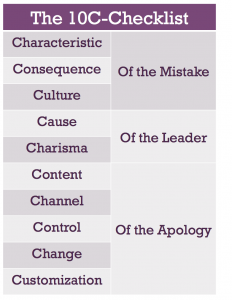
—
The 10-C Checklist
by Iris Wenting Xue
Leaders contemplating an apology should reflect on ten considerations that can help the apology have its desired effect.
The ten considerations are:
- Characteristic: What is the nature of the event that calls for an apology. Was it intentional or accidental? Natural or man-made? Caused by something done that shouldn’t have been done, or something not done that should have been? In other words, how much do we know about the thing for which we need to apologize?
- Consequence: What is the nature of the harm? How severe is it? How widespread? Was the harm economic loss? Injury? Death? Insult? Other?
- Culture: What’s the cultural context in which the harm was caused and in which the apology will be made? Is apology expected? Popular? Necessary? Is it frowned upon? Is there a culturally-appropriate form of apology (e.g., ceremonial bow in Japan)?
- Channel: Where should the apology be made? Directly to those affected? Through the media or social media? On video or just in writing? In person? All of the above?
- Content: Is it clear what is being apologized for? (E.g., what the offender did, not what the offended felt.) Is the apology complete? Does it explain how the event happened? Does it ask for forgiveness? Does it include an admission of accountability? Does it commit to take steps to prevent a recurrence? Does it offer restitution?
- Customization: Is it a general or a customized apology? Is the content specifically tailored for the event in question and for those who need to hear it? Or is it just a generic statement of regret?
- Change: Is the apology as drafted likely to change audiences’ attitudes towards the person apologizing, or to make matters worse? Has the person apologizing committed to changing his or her behavior in the future?
- Control. When will the apology happen? Will it be seen to be spontaneous or forced? Is it at offered before being demanded? Only after demands for an apology have become public?
- Cause: What will be the perceived incentive of the person apologizing? Is it to genuinely achieve forgiveness? Or to reduce financial harm? Or to keep one’s job that might otherwise be in jeopardy?
- Charisma: Does the person apologizing enjoy good reputation? Is he or she otherwise respected and popular? How many times has he or she had to apologize before? Do those prior attempts make this one seem less sincere?
Reflecting on these ten considerations can help a leader, and those who advise the leader, to more likely craft an apology that will work.
More About Iris Wenting Xue
Ms. Xue graduated from New York University with her MS in Public Relations and Corporate Communication in 2014, and joined Logos Institute part time upon graduation. She became a full-time research fellow in 2015.
Ms. Xue earned her Bachelor’s Degree in Translation and Interpretation (both English and German) from Shanghai International Studies University, where she won scholarships each semester. She was named one of the “Top Ten Campus Writers in Shanghai” in 2006. While in high school she was selected to study at Munich University in a program focused on German language and culture.
In 2015 she passed the Japanese-Language Proficiency Test certified by the Japan Educational Exchanges and Services in collaboration with the American Association of Teachers of Japanese. She also earned the highest level of German Language Certificate of the Education Ministers Conference (in German: Deutsches Sprachdiplom der Kultusministerkonferenz Stufe II) in 2007. She was born in Shanghai, China. Her native languages are Mandarin and Shanghainese. She is fluent in English and understands Cantonese in professional working proficiency.



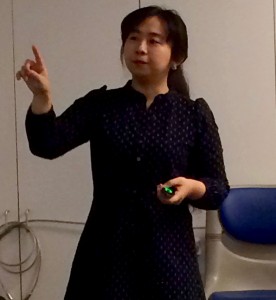
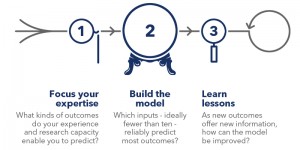
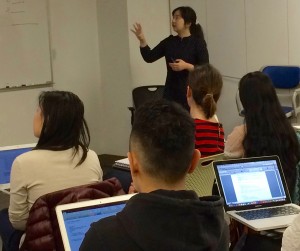


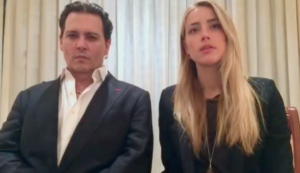
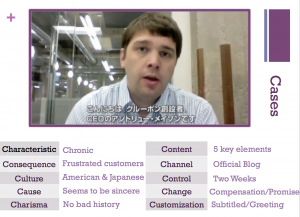

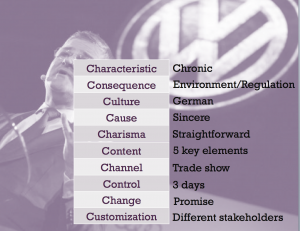


Leave a Reply
Want to join the discussion?Feel free to contribute!